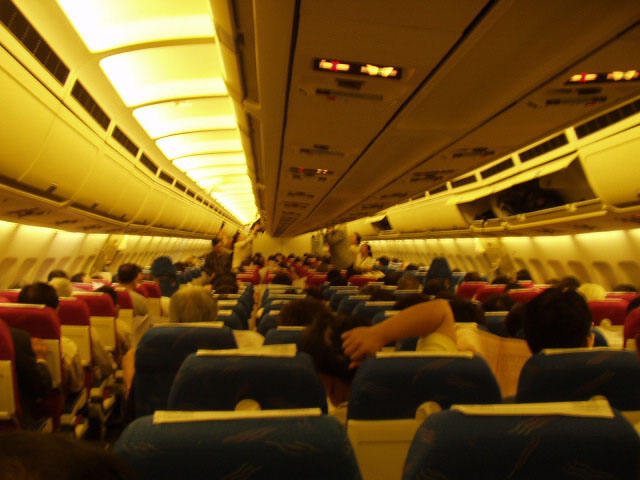
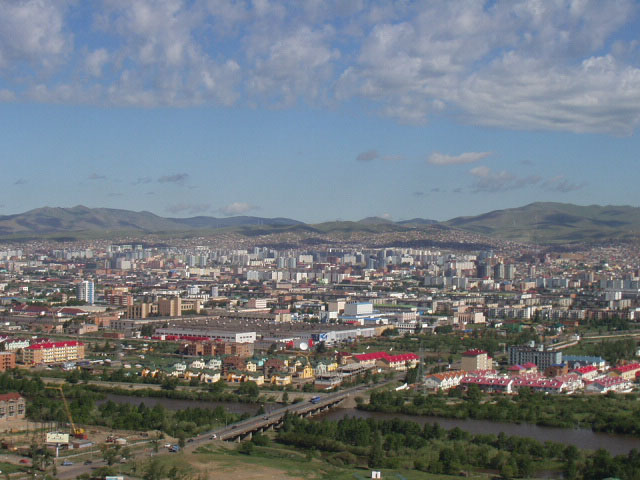
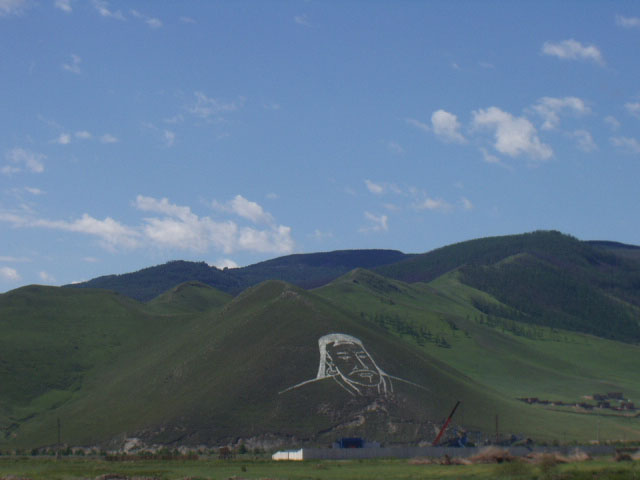
※ If you want to download a photograph, please put the point on the spot and click the right button on your mouse and save it.
I visited Mogolia in July 2006 to participate in the Korean-Mongolian Conference on the Trends and Issues of Civil Law and Land Legislation.
I was surprised to see all 280 seats of the Korean Air Airbus have been sold out though it is scheduled to arrive at Ulaanbaatar in the midnight. All the participants in the International Conference, headed by Professor M.B. Chang of Kookmin University, could occupy the rear seats of the Airbus. Most of passengers were Koreans beside some Mongolians and Japanese travellors. It showed that Mongolia is very near at hand from South Korea.



The capital city of Ulaanbaatar, which means "red heros", was full of citizens who have almost identical look with Koreans.
It's true we are all Mongolians! My thought that Korean youngsters have become westernized in their appearance and constitution was betrayed by the first observation.
Next morning I found second-hand Korean-made automobiles like Hyundai Accent and even Seoulite buses with the body painting kept intact were running on the Ulaanbaatar streets. I felt like I was standing in the surburb of Metropolitan Seoul.
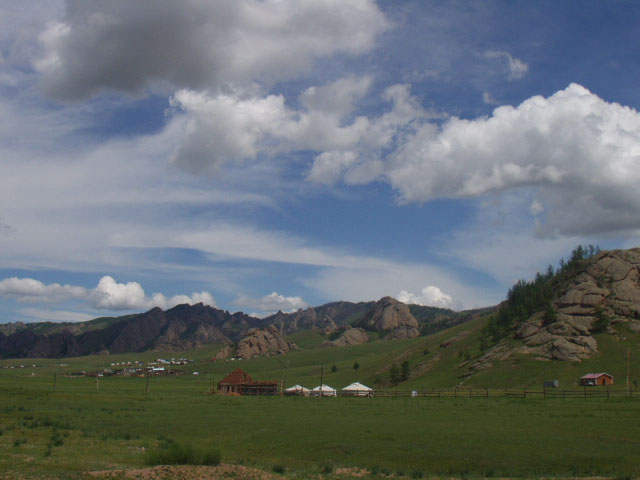
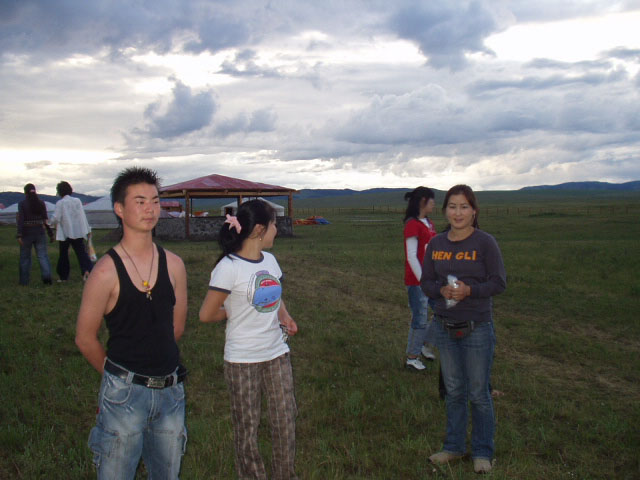
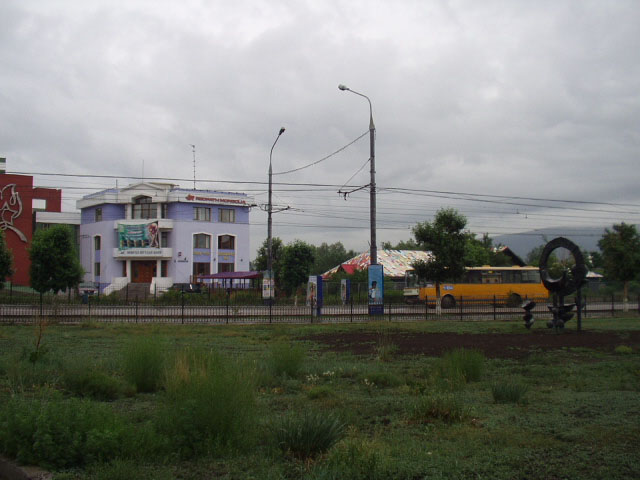
It was a surprise before I left Seoul that Mongolians are enthusiastically eager to visit Seoul, Korea which they call "Solongos" meaning the country of rainbow.
As a matter of fact, 25 thousand people, more than one per cent of the whole Mongolian population, are staying in Korean to study or work for living. Most of them belong to the high class intellectuals causing a kind of brain drain. The second tour guide, a Mongolian guy, was working at Janganpyong District in Seoul for two years. He was said to be an engineer who was once educated in Russia.
The interpreters were said to study at Seoul National University and Seoul City University. They were speaking Korean very fluently with standard pronunciation, and now working at colleges of Korean Studies or Korea-related enterprises.
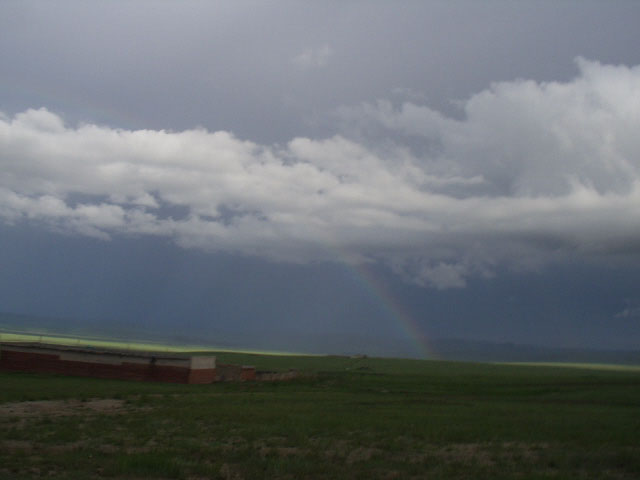
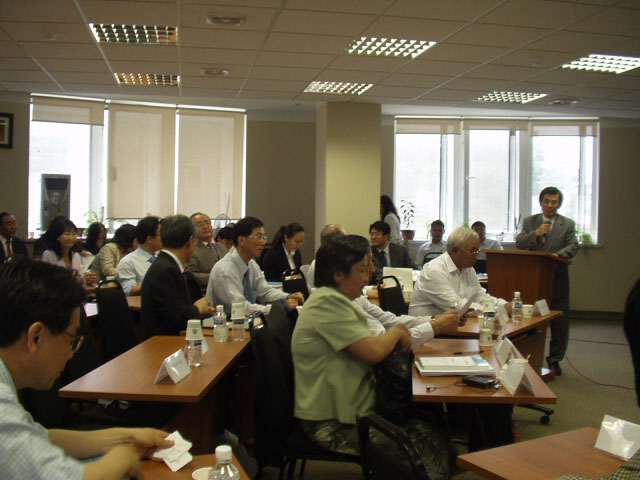
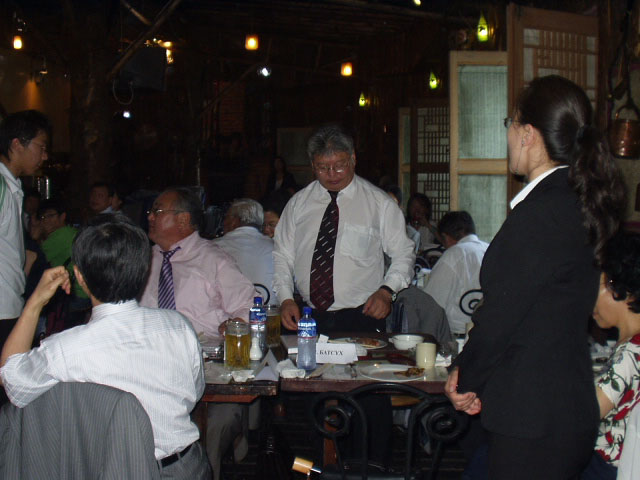
The July 7 International Conference was designed to provide in-depth comparative insight into Civil law and land legislation to Korean and Mongolian participants. Mongolia is in the midst of transition, while North Korea is to prepare for the transition to market economy. The speakers included not only Korean and Mongolian scholars and specialists but also professors from Inner Mongolia, China and Irkutska, Russia.
Korean participants were interested in the Mongolian efforts to transform the country of meadow land into a country of economic development. The Constitution of 1992, established just after the democratization reform of Mogolia, acknowledges the private ownership of land except pastures, common-use land and land for specific State needs. But the ownership is strictly limited to Mongolian citizens, and it is not allowed to foreigners. Land other than that owned by citizens of Mongolia is the property of the State.
Accordingly, the Agency of Land Affairs of Mongolia has established land registration maps and land books with special assistance of the Korea Legislation Research Institute and other foreign countries, and identified the particulars of land nationwide eligible for the private ownership.
As a result, we could witness the boundaries of land marked with wooden stakes or stones here and there. But the bankers still regarded it as risky to extend loans securitized by mortgage because trading of private land seldom takes place at present. The bankers usually demand the interest on loan by 4 to 8 percent.
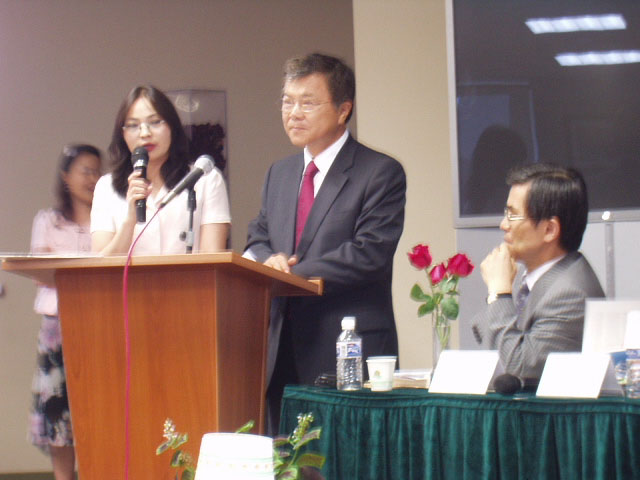
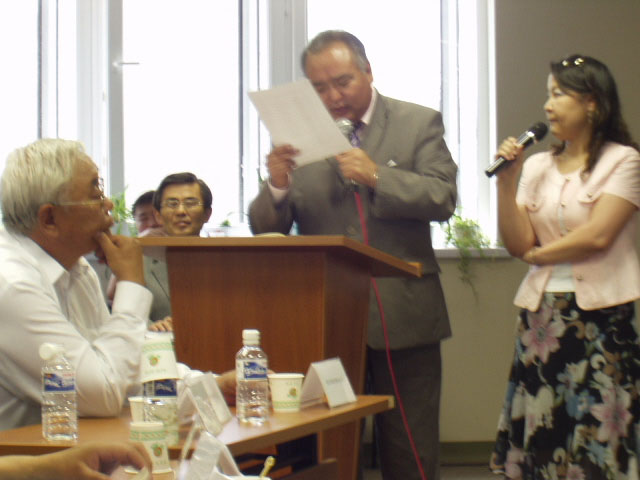
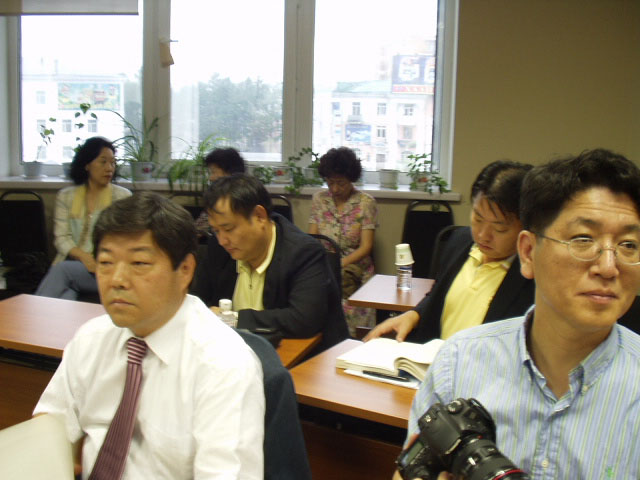
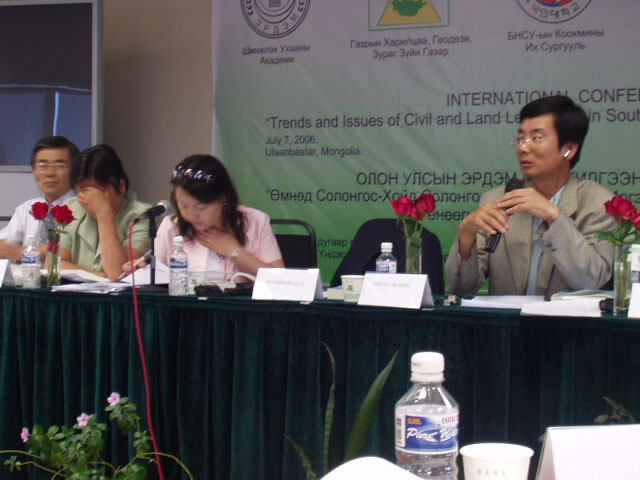
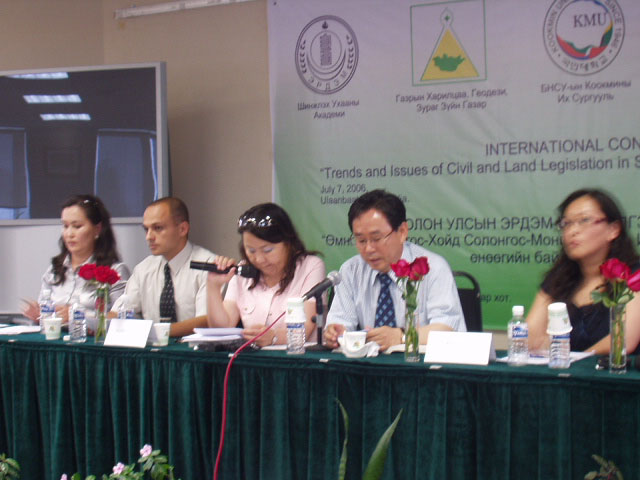
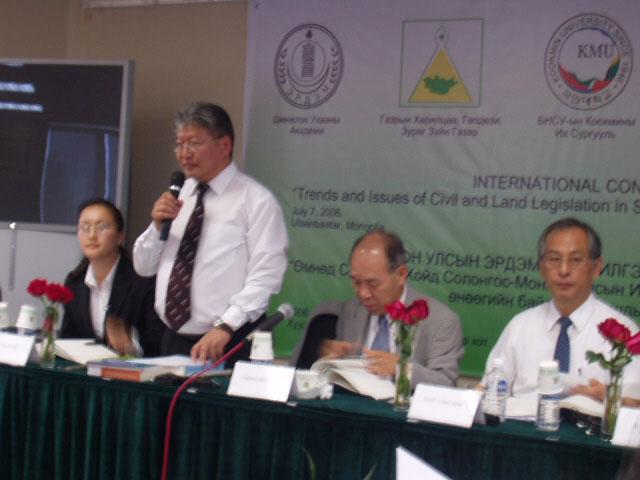
Mongolians living in the city area perfer modern apartment houses and cars to the traditional house, ger, and herd of horses and sheep. The more they accumulate wealth, the more they will be westernized. The boy who helped me ride on horseback was eager to possess a bycycle with gears.
Dr. J. Lee of KLRI, co-sponsor of the International Conference, explained that making land registration maps of North Korea is not difficult with the help of satellite technologies. He insisted that national consensus is required for the privatization of North Korea's land, restitution or compensation of private ownership by former land owners. Common use rather than the privatization of North Korean land might be an alternative.
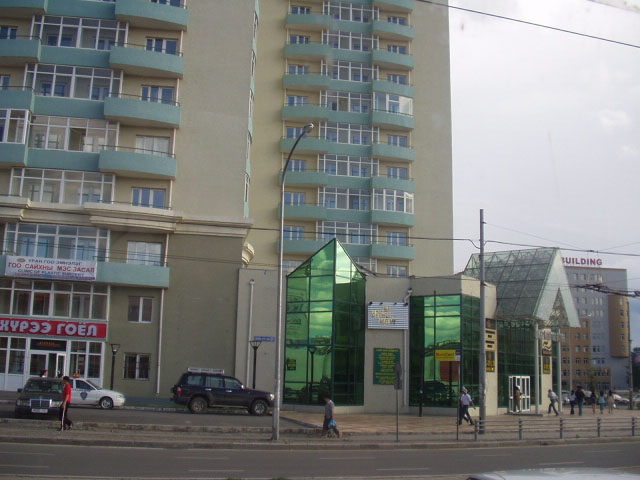
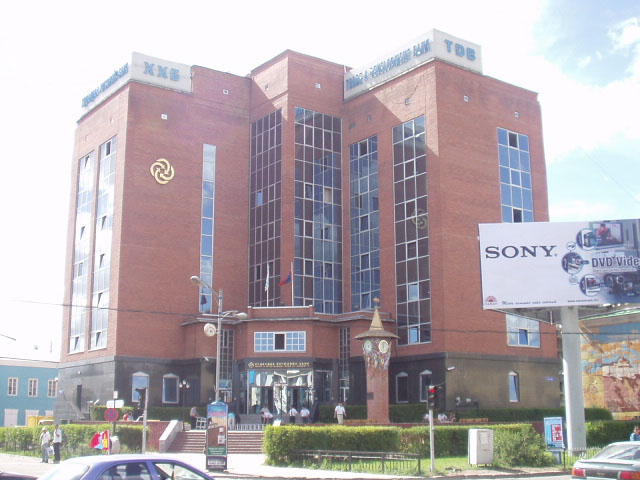
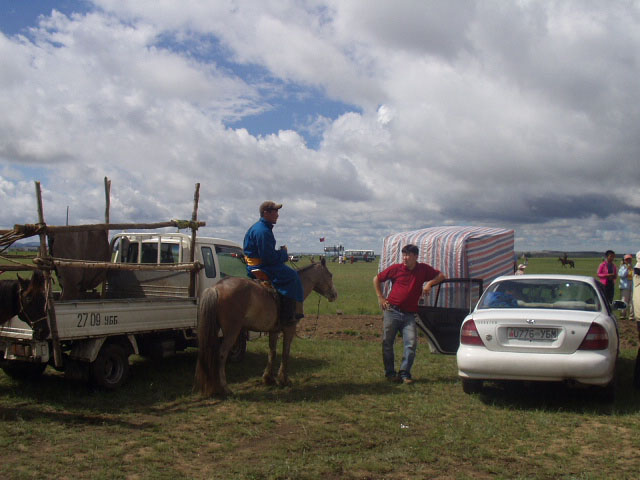
The Mongolian counterpart of the International Conference was Mr. Amarsanaa. J, Director of the Mongolian National Legal Center, and Justice of the Constitutional Court. He once worked as the Minister of Justice at the democratic government of Mongolia.
He invited all the Korean participants to the Constitutional Court on July 10, the day before the Nadam Festival for the 800th Anniversary of the Mongolian State, though he had other busy offical schedules. He allowed us to have seats of Justices of the Court for taking photographs.
Professor Sang-Yong Kim, President of the Korea Land Law Association, made a suggestion to Director Amarsanaa to study the meadow land law of Mongolia while staying in the ger on the pasture. Professor Kim has an idea to foster herd of cattle, sheep and goats in Mongolia to produce and import meat, sheepskins and cashere hair into Korea.
Dean Young-Chol Kim of College of Law, Konkuk University, which has a prestigious college of livestock, was also interested in that idea, and he promised to prepare for the long-term research into the customs meadow land law in concert with the National Legal Center of Mongolia and the co-sponsorship of the International Conference in the near future.
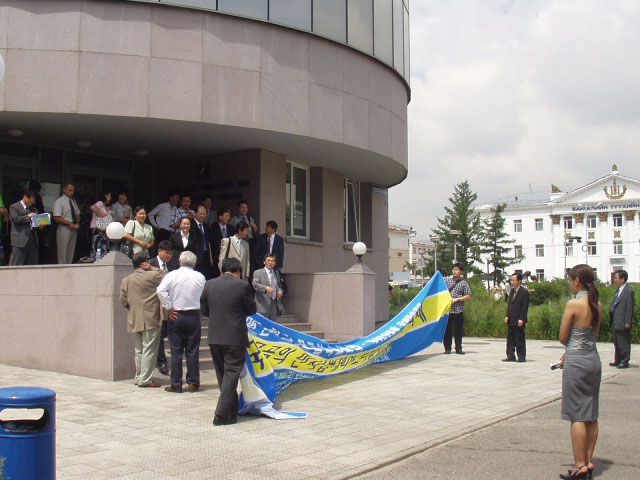
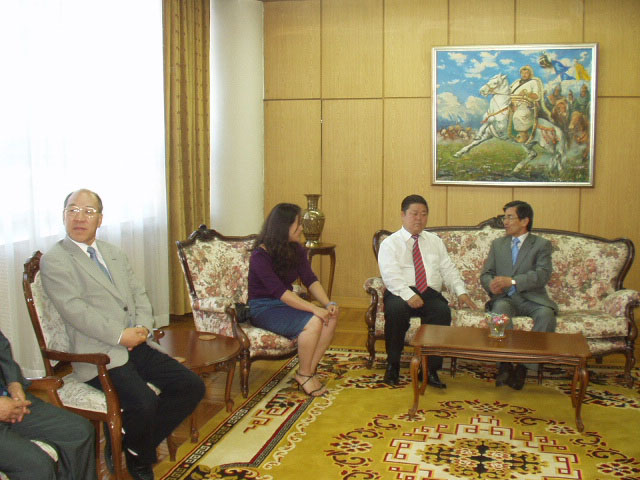
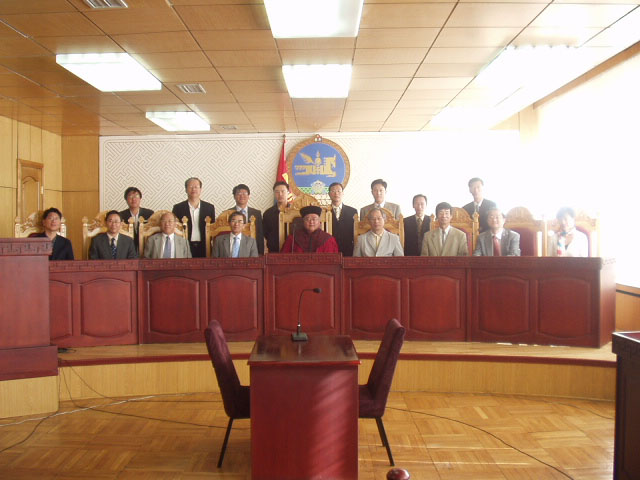
The two "musts" in the Mongolian tour is horse riding by day and star watching at night.
We had some difficuties in making a reservation at modern hotels in Ulaanbaatar, because many tourists pour into the city area during the Nadam Festival. But it was memorable to put up at a traditional mobile house, ger.
At first, we stayed at the Mongonmorit camp, which is very near to Temujin's hometown. Every ger is usually equipped with three to four beds with a stove at the center. At the center of the ger's ceiling, there is a hole to put the stove pipe out. It is good for ventilation and star watching for time check. More often than not the roof hole made troubles to us because it was raining at night.
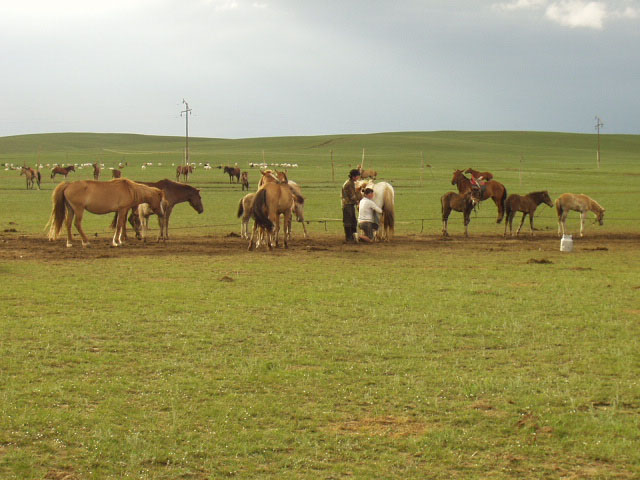
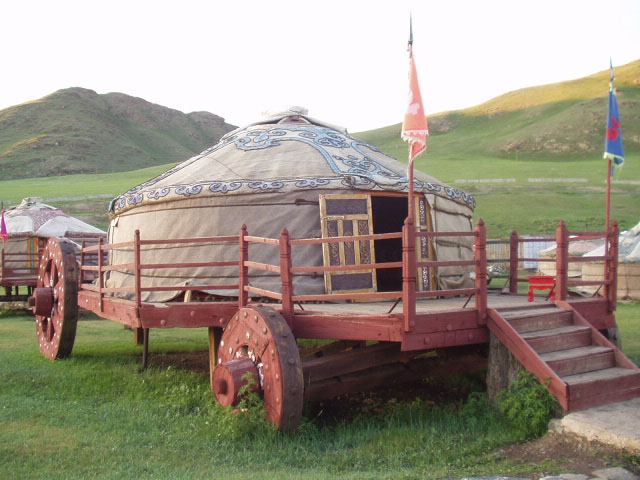
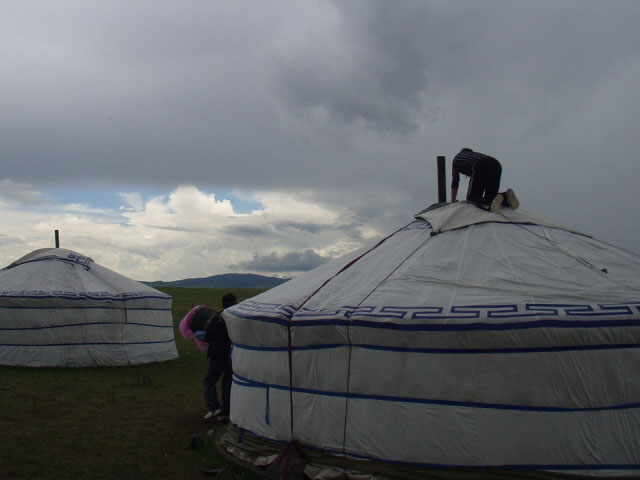
Unfortunately, during the night, we had to feed the stove with a lot of fire wood for heating. It was so hot when consuming fire wood, but became so cold when the fire went out in a few hours. Its heating efficiency was too poor. We were missing the Korean "ondol" system, which preserves the heat all the night.
We felt like criticizing Mongolian people who are lazy and have made few efforts to improve the heating system of ger during the past hundreds of years. It made a good contrast to the fact that the Korean Woman Power has made it possible to make world best electric rice cookers and Kimchi refrigerators.
Sooner or later, I became to understand that any nomad has to construct and dismantle the ger within an hour, and procure fire wood easily available at meadows. My criticism was beyond the Mongolian reality. I thought the ger style could be adopted in the modern architecture.
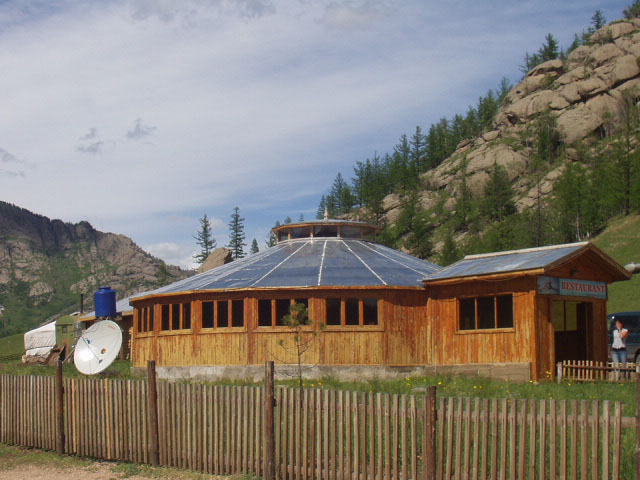
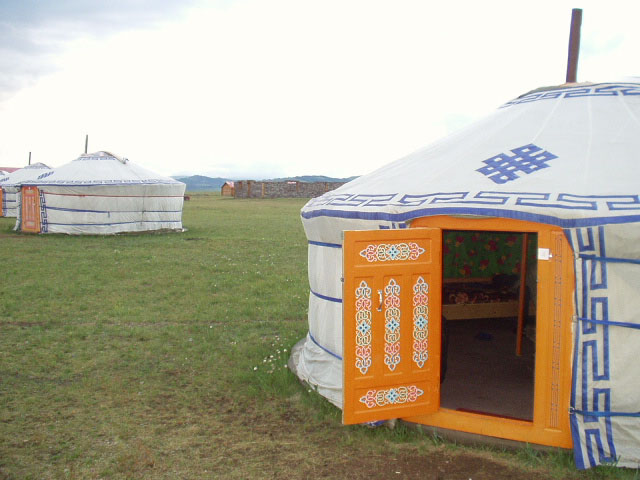
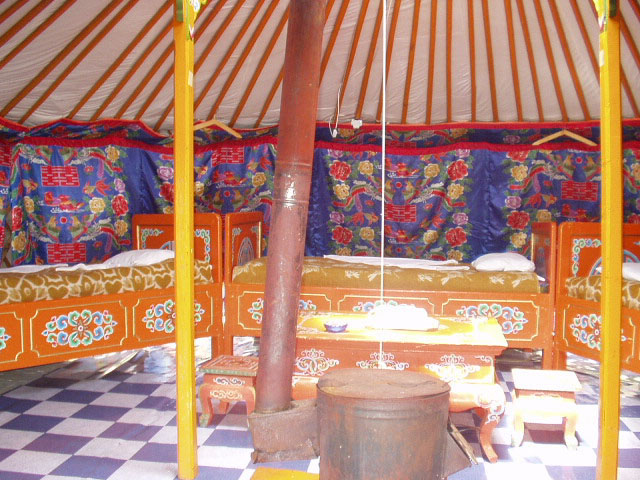
We were overwhelmed by the sight of great pastures once we left the outskirts of Ulaanbaatar. There were some herds of horses and sheep on the meadow. Mongolians need not feed those herds during the freezing winter.
We talked what if Korean residents are allowed to live in Mongolia for a considerable period of time. At present, Christian missioneries are working to christianize Mongolian people and North Korean derserters. Maybe those Koreans will establish walls to mark their private possession of land, and take time to improve the quality of grass to feed well livestock, and try to develp underground resorces like pure water and minerals.
Planting trees in the hills and mountains is not an easy job in Mongolia. It has to anticipate the next generation at the site.
At the Mongonmorit camp, tens of Korean ICY students were planting trees alongside the wooden walls. Around the Terelj National Park, which is famous for the great turtle-shaped rocks, we could see well-managed forest like the Alps landscape.
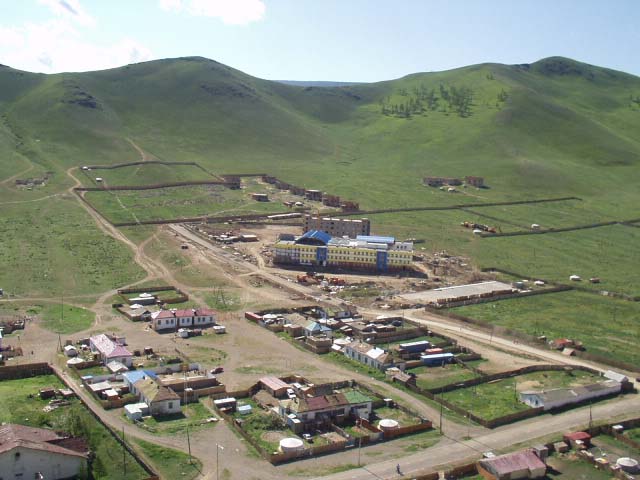
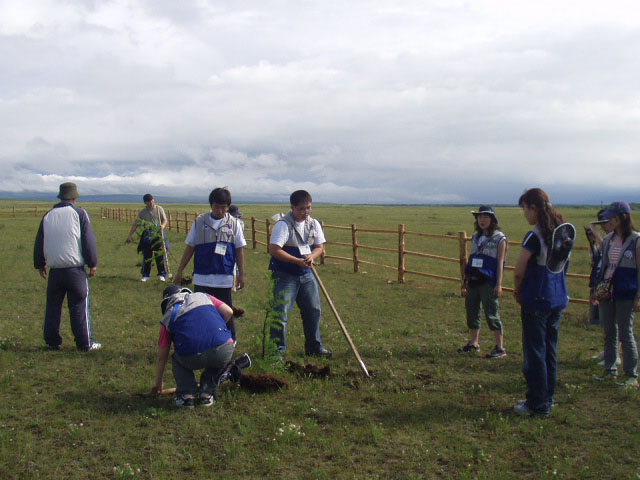
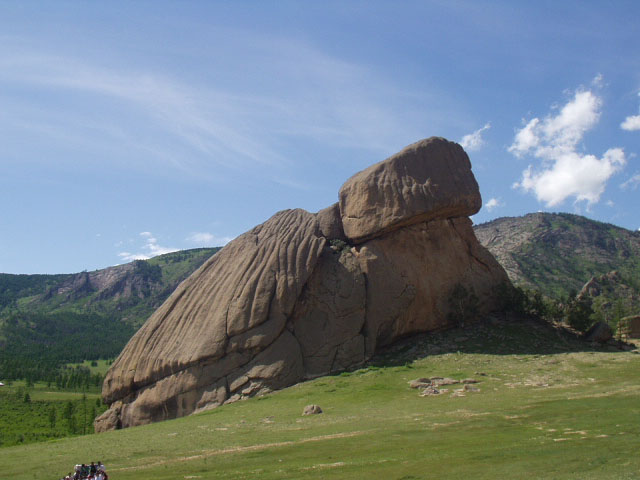
Mongolia is a big country, 7.7 times bigger than South Korea, with much smaller population of only 2.5 million. Mongolia is said to have affluent natural resources but very poor SOC facilities. She is enthusiastically inviting foreign investment, but Korean business men used to shun this small market. I became to understand that over-populated Korean peninsula was an arena to survive the fierce competition for the sake of economic growth.
Korean's unique "quick, quick" traits are not to blame. It enables the nation's development of wide spectrum from economic growth to political democratization, to cultural diversification at a light speed. It has some resemblance to Chinggis Khan's speed-first military strategy that Korean businessmen have conducted business around the world.
We had a good time watching Mongolian people perform horse race, Mongolian wrestling and other mini-Nadam festivities. And we were indulged in the almost same ethnic atmosphere. For example, the Mongolian wrestling was almost similar to Korean Ssireum except the waist belt knots.
Finally all of us became to find ourselves as players in the arena rather than spectators of the Nadam Festival.
Journalist Cho Gap-Je of Chosun-Ilbo studied the tactics and strategies of the Mongolian horse legions, and reached a conclusion that around 100 thousand Mongolian soldiers were so good at 3 S's - speed, simplicity and self-assurance that they could conquer the neighboring countries, big or small, and established a great empire lasting for hundreds of years.
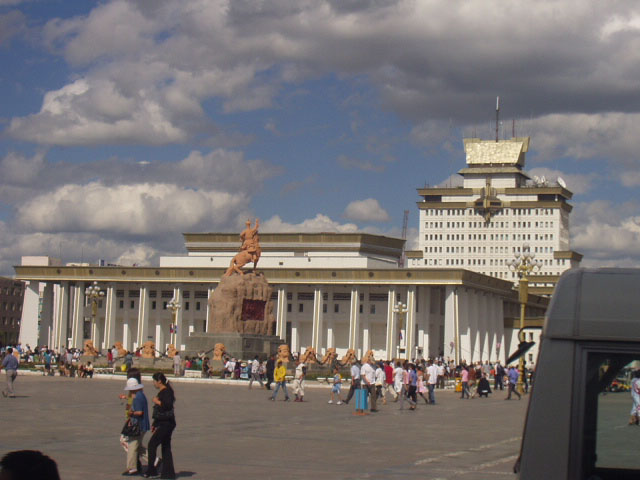
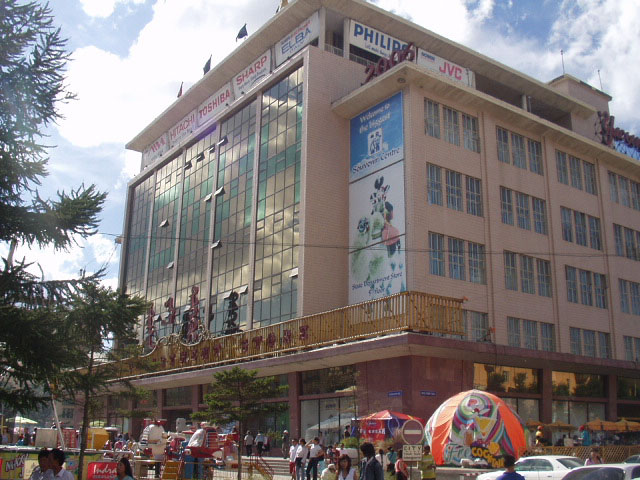
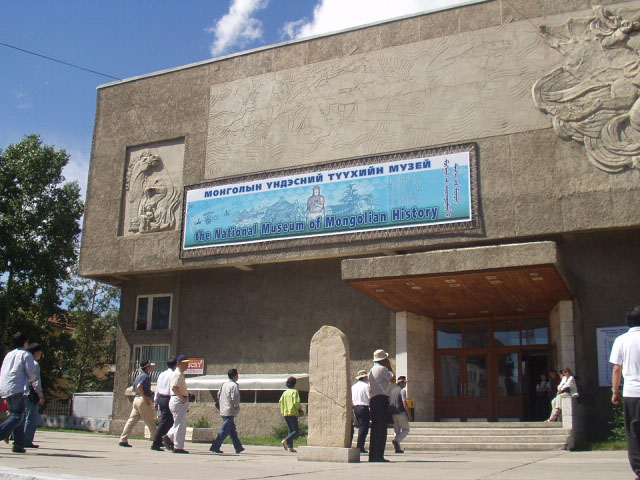
At that time, the European knights fell into a panic because they could not fight against the speedy movement of Mongolian horsemen. The Mongolian soldiers would not respect the knightship or the methodology to stage a war, and employed every possible tactic or strategy to win the day.
The result and aftermath of the Mongolian victories were merciless beyond the expectation or imagination of Western civilization. It's quite natural that the Russians, suffering from the occupation of the Mongolian regime for 250 years, were not patient of Chinggis Khan whom Mongolians were proud of.
However, we have to learn a lot of lessons from Chinggis Khan. Take an example of a dispatched representative called "Darugachi". It looks like the localization policy employed by a modern multi-national company, which governs world-wide organizations with a small group of executive officers and specialists. Mongolian ruler made it as a rule "Battles are staged merciless, while governance merciful. Operations should be based upon timing and mobility, organizational management upon loyalty and righteous morality.
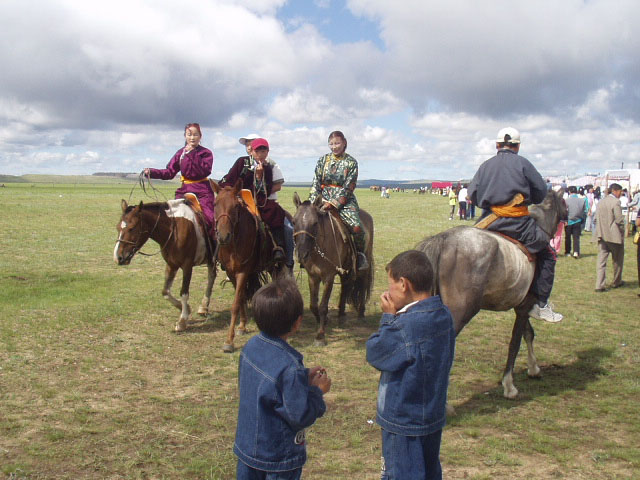
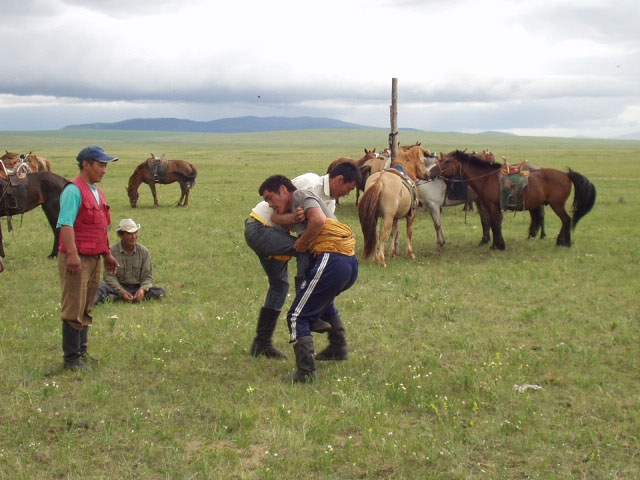
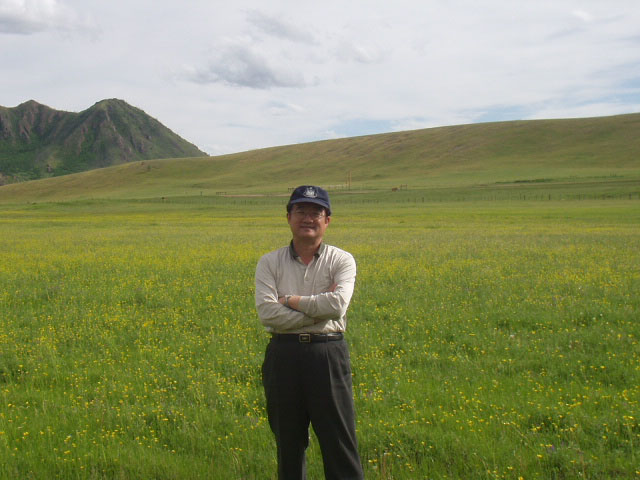
At the heydey of the Mongolian occupation, Mongolians were proud of their thoughts and way of life. They succeeded to avoid contaminated foreign cultures and realized 'Pax Mongolica' on the Eurasian Continent during the 13th to 14th centuries.
Then, we must stay on the right track being not swept by wayward "globalization" but respectful of our own cultural and traditional values. We have to disseminate the Korean values around the globe.
The Mongolians have been very competent, practical and great in establishing a world.
As a lawyer, we were willing to accept the mission to get through common law, civil law and socialist law, and finally make out a third solution to help mankind live a beneficial life. And we may well have such self-assurance inspired and encouraged by Chinggis Khan of 800 years ago.
In the Korean version
[Recommendable Book] Jack Weatherford, Genghis Khan and the Making of the Modern World (also translated into Korean)